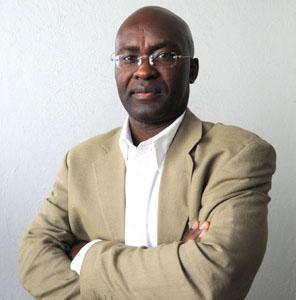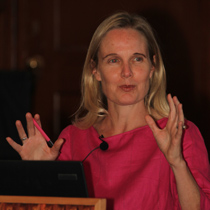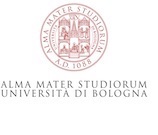|
This course will test the controversial hypothesis that Africa represents both the final frontier of the modern urban form as well as its future. Of all major African metropolitan forms, Lagos, Johannesburg and Kinshasa are, arguably, those that have the most radically challenged key tenets of contemporary urban theory and in ways that are the most compelling. Taken separately, studies of each have given rise to a set of conceptual innovations, methodological and analytical insights and forms of thought likely to throw unexpected light on the ongoing planetarization of the urban predicament.
Yet rarely do they directly speak to and influence each other. Instead, each appears to look outwards and elsewhere to find their interlocuters. Yet if we are to take ‘Southern theory’ seriously, and if we are to imagine a borderless Africa in the face of an almost planetary closing of borders to Africans, then political and conceptual argument and exchange between African cities become newly compelling.
This course will put these three mega-cities in sustained engagement. What can work on Kinshasa reveal to us about Lagos that we hadn’t seen before? What does reading Kinshasa in and from Johannesburg change about both cities? How does work of a particular author or artist in one city get re-interpreted in another city? The course proposes to curate anew these three mega-cities using some of their most intriguing contemporary archives while mapping the circulatory networks and corridors which simultaneously connect them while keeping them apart: (1) digital imaginaries and the rerouting of online worlds; (2) fictional, aqueous and other infrastructures; (3) photography and cinematography; (4) soundscapes (music in particular) and fashion; (5) ideas. Finally the course will assess the extent to which these lenses might be useful for analyzing and drawing into more vivid being, cities everywhere.
 Achille Mbembe is Professor at WiSER in South Africa. Born in Cameroon, he obtained his Ph.D in History at the Sorbonne in Paris in 1989 and a D.E.A. in Political Science at the Institut d’Etudes Politiques (Paris). He was Assistant Professor of History at Columbia University, New York, from 1988-1991, a Senior Research Fellow at the Brookings Institute in Washington, D.C., from 1991 to 1992, Associate Professor of History at the University of Pennsylvania from 1992 to 1996, Executive Director of the Council for the Development of Social Science Research in Africa (Codesria) in Dakar, Senegal, from 1996 to 2000. Achille was also a visiting Professor at the University of California, Berkeley, in 2001, and a visiting Professor at Yale University in 2003. He has written extensively in African history and politics, including La naissance du maquis dans le Sud-Cameroun (Paris, Karthala, 1996). On the Postcolonywas published in Paris in 2000 in French and the English translation was published by the University of California Press, Berkeley, in 2001. In 2015, Wits University Press published a new, African edition. He has an A1 rating from the National Research Foundation. Achille Mbembe is Professor at WiSER in South Africa. Born in Cameroon, he obtained his Ph.D in History at the Sorbonne in Paris in 1989 and a D.E.A. in Political Science at the Institut d’Etudes Politiques (Paris). He was Assistant Professor of History at Columbia University, New York, from 1988-1991, a Senior Research Fellow at the Brookings Institute in Washington, D.C., from 1991 to 1992, Associate Professor of History at the University of Pennsylvania from 1992 to 1996, Executive Director of the Council for the Development of Social Science Research in Africa (Codesria) in Dakar, Senegal, from 1996 to 2000. Achille was also a visiting Professor at the University of California, Berkeley, in 2001, and a visiting Professor at Yale University in 2003. He has written extensively in African history and politics, including La naissance du maquis dans le Sud-Cameroun (Paris, Karthala, 1996). On the Postcolonywas published in Paris in 2000 in French and the English translation was published by the University of California Press, Berkeley, in 2001. In 2015, Wits University Press published a new, African edition. He has an A1 rating from the National Research Foundation.
 Sarah Nuttall is the Director of WiSER since January 2013, where she was a prominent Senior Researcher from 2000 until 2010. Born in South Africa and educated at the Universities of (then) Natal and Cape Town, Sarah won a prestigious Rhodes Scholarship to read for a D.Phil. at Oxford. A literary scholar by training, Sarah’s varied research interests and prolific publication record have established her as a leading cultural commentator and critic as well as one of the leading scholars of her generation. She has lectured at the University of Stellenbosch and, for the past five years, has been a Visiting Professor at Yale University and Duke University. Sarah has edited several path-breaking books; her influential monograph, Entanglement: Literary and Cultural Reflections on Post-apartheid, explores mutuality, transgression and embodiment in contemporary South Africa. Sarah has published in various journals including in Cultural Studies, Interventions: International Journal of Postcolonial Studies, Journal of South African Studies, Public Culture, Third Text and Social Dynamics. She is a member of the editorial boards of Journal of Southern African Studies, Humanity, Cultural Studies, Social Dynamics, English Studies in Africa, and English Academy Review. Sarah Nuttall is the Director of WiSER since January 2013, where she was a prominent Senior Researcher from 2000 until 2010. Born in South Africa and educated at the Universities of (then) Natal and Cape Town, Sarah won a prestigious Rhodes Scholarship to read for a D.Phil. at Oxford. A literary scholar by training, Sarah’s varied research interests and prolific publication record have established her as a leading cultural commentator and critic as well as one of the leading scholars of her generation. She has lectured at the University of Stellenbosch and, for the past five years, has been a Visiting Professor at Yale University and Duke University. Sarah has edited several path-breaking books; her influential monograph, Entanglement: Literary and Cultural Reflections on Post-apartheid, explores mutuality, transgression and embodiment in contemporary South Africa. Sarah has published in various journals including in Cultural Studies, Interventions: International Journal of Postcolonial Studies, Journal of South African Studies, Public Culture, Third Text and Social Dynamics. She is a member of the editorial boards of Journal of Southern African Studies, Humanity, Cultural Studies, Social Dynamics, English Studies in Africa, and English Academy Review.
|






